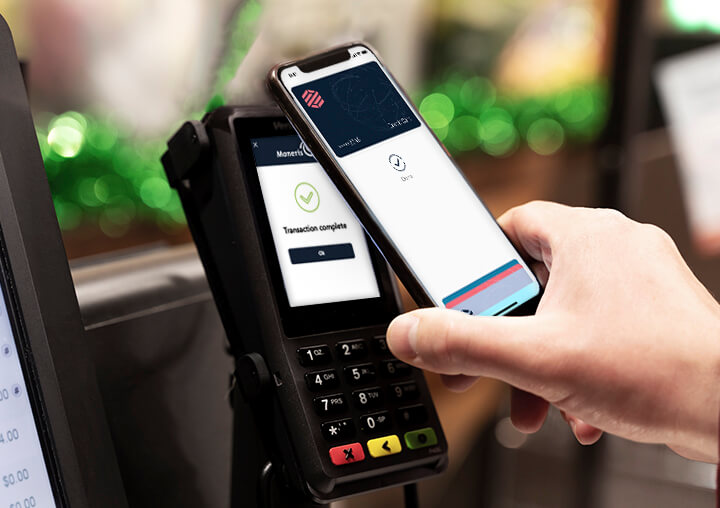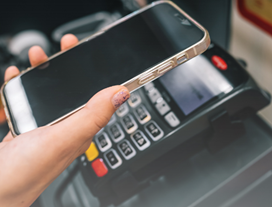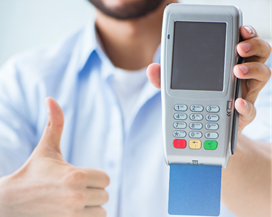
What is a Point-of-Sale System? Costs and Features Explained | Understanding POS Systems
A point-of-sale (POS) system is a tool that enables businesses to process sales, track inventory, manage payments and analyze customer transactions.

The integration of credit card machines is a fundamental aspect that businesses, regardless of size, must consider to thrive. The transition to a more digital and card-dependent consumer base necessitates the need for these devices that not only facilitate transactions but also enhance the customer and merchant experience in numerous ways. Here's a deep dive into the importance of credit card machines for businesses, drawing on insights from industry experts.
Credit card machines, or point of sale (POS) terminals, serve as the bridge connecting customer payments to business accounts. These devices allow for the secure and efficient processing of credit and debit card transactions, which is pivotal in today’s fast-paced commerce environment. Selecting a terminal that aligns with your business needs can significantly impact customer retention, satisfaction, and the overall cash flow of your business. Here is a step-to-step guide on how to work a credit card machine:
Insert, Swipe, or Tap: For transactions, you can either insert the card into the chip reader, swipe the card through the magnetic stripe reader, or tap the card or a mobile device (for NFC payments) on the NFC reader.
Understanding how to operate a credit card machine is crucial for smooth business operations. Regular training and updates on new payment technologies can help your team stay efficient and knowledgeable, ensuring that every customer transaction is handled professionally. Always refer to your specific model’s user manual for detailed instructions tailored to your machine.
Selecting the right credit card machine is vital for businesses looking to enhance transaction efficiency and ensure customer satisfaction. Here are some of the essential features to consider, each contributing to the functionality, security, and user-friendliness of your payment processing system.
A user-friendly credit card machine can drastically reduce the time spent on training employees and can help minimize errors during the transaction process. Look for machines with intuitive interfaces, clear displays, and simple navigation.
Opt for credit card machines and payment processing services that offer transparency in pricing. Avoid long-term contracts and look for providers that do not charge hidden fees, which can help control operational costs and simplify budget management.
The ability to integrate smoothly with your existing point-of-sale (POS) system is crucial. This integration should support all aspects of your sales operations, including inventory management, sales reporting, and customer management, ensuring a cohesive and efficient retail environment.
Security is paramount in any financial transaction. Choose credit card machines that comply with Payment Card Industry Data Security Standard (PCI DSS) requirements. This compliance helps protect sensitive data and reduces the risk of data breaches.
To accommodate various payment methods, ensure that your credit card machine supports EMV chip technology and Near Field Communication (NFC) for contactless payments. This not only broadens your customer base but also enhances transaction security.
For businesses on the go or those offering services at customer locations, portable credit card machines are essential. These should be lightweight, have a robust battery life, and be capable of connecting via multiple networks such as Wi-Fi and cellular data.
The reliability of your credit card machine impacts customer experience directly. Reliable machines have good build quality, can handle high volumes of transactions, and have low failure rates. Always check reviews or testimonials for user experiences before making a purchase.
While digital receipts are becoming more common, the option to provide printed receipts is still important for many consumers, especially in regions with a preference for physical copies. Ensure your machine can accommodate this need, which is often crucial for bookkeeping and returns.
Business operations today require robust payment systems that cater to varying customer interactions and environments. Understanding the different types of credit card machines available can significantly impact the efficiency and security of your transactions. Here, we detail the three primary types of credit card machines, each designed to suit different business models and transaction environments.
Moneris Go Plus represents a premium choice for businesses seeking advanced functionality combined with ease of use. This device is particularly well-suited for environments where speed and reliability are crucial. Moneris Go Plus offers a faster processing capability, which means quicker transactions, reducing wait times for customers. Its robust design accommodates high-volume transactions, making it ideal for busy retail settings or restaurants. Additionally, it supports various payment methods including tap, chip, and swipe, ensuring versatility in customer interactions.
Moneris Go is designed for businesses that require mobility without sacrificing functionality. This compact, mobile point of sale (POS) system is perfect for businesses on the go or those with limited counter space. It’s lightweight and portable, enabling transactions at various locations—be it at tables in a restaurant, on delivery routes, or at temporary market stalls. Despite its size, Moneris Go does not compromise on security or payment options, supporting all major credit and debit cards, contactless payments, and even mobile wallet transactions.
Moneris Core POS machines are the backbone of many retail and hospitality settings, offering tried and tested reliability. These machines are built to handle a broad range of payment types and are equipped with features tailored to more complex business environments. Moneris Core systems integrate seamlessly with other business management tools, providing inventory tracking, sales reporting, and employee management functionalities. This makes them not just payment processing units but comprehensive business management solutions that help streamline operations and enhance customer service.
The integration of advanced credit card machines into business operations offers a multitude of benefits that can significantly enhance both customer satisfaction and operational efficiency. These benefits are crucial in a competitive market where the ease and security of transactions play a pivotal role in customer retention and business growth.
One of the primary benefits of modern credit card machines is the enhancement of the customer payment experience. By offering a variety of payment methods, including credit and debit cards, NFC payments (like Apple Pay and Google Pay), and EMV chip cards, businesses can cater to a broader audience. This flexibility not only meets but also anticipates customer preferences, which can increase satisfaction and encourage repeat visits.
Today’s credit card machines streamline various aspects of the transaction process. Features like fast processing speeds, immediate payment confirmations, and integration with existing POS systems reduce the time per transaction and minimize the queue times at checkout. This efficiency is vital for high-volume environments like retail stores and restaurants, where customer throughput is directly tied to profitability.
Security is a top concern for both consumers and businesses in the digital age. Modern credit card machines come equipped with advanced security features, including PCI compliance, end-to-end encryption, and fraud detection algorithms. These security measures protect sensitive customer information and help prevent unauthorized transactions, thereby reducing the risk of costly frauds and data breaches.
Flexibility in payment processing is increasingly important as businesses adapt to varied consumer needs and technological advancements. Contemporary credit card machines offer customizable options that can be tailored to specific business models. Whether it’s setting up recurring billing for subscription-based services or offering loyalty program integrations, these machines provide the tools necessary to create a personalized customer experience.
Advanced credit card machines often come with analytics and reporting tools that help businesses monitor and analyze their financial data. This capability allows business owners to gain valuable insights into sales trends, peak transaction times, and customer purchasing behavior. Armed with this data, businesses can make informed decisions about inventory management, marketing strategies, and customer engagement initiatives.
Many modern machines also support electronic receipt options, which contribute to environmental sustainability by reducing paper use. This feature is increasingly appealing to eco-conscious consumers and can enhance a company’s brand image as environmentally responsible.

A point-of-sale (POS) system is a tool that enables businesses to process sales, track inventory, manage payments and analyze customer transactions.

Contactless payment for restaurants offers speed, security and convenience. Learn how tap-to-pay technology improves efficiency and enhances the dining experience.

Learn how to choose the best POS system for your small business. Explore essential features and tips for payment processing and inventory management.

Learn how to process payments online with this comprehensive guide for Canadian businesses. Explore secure, efficient payment processing solutions, and gain insights into integrating and optimizing payment systems to meet customer needs.